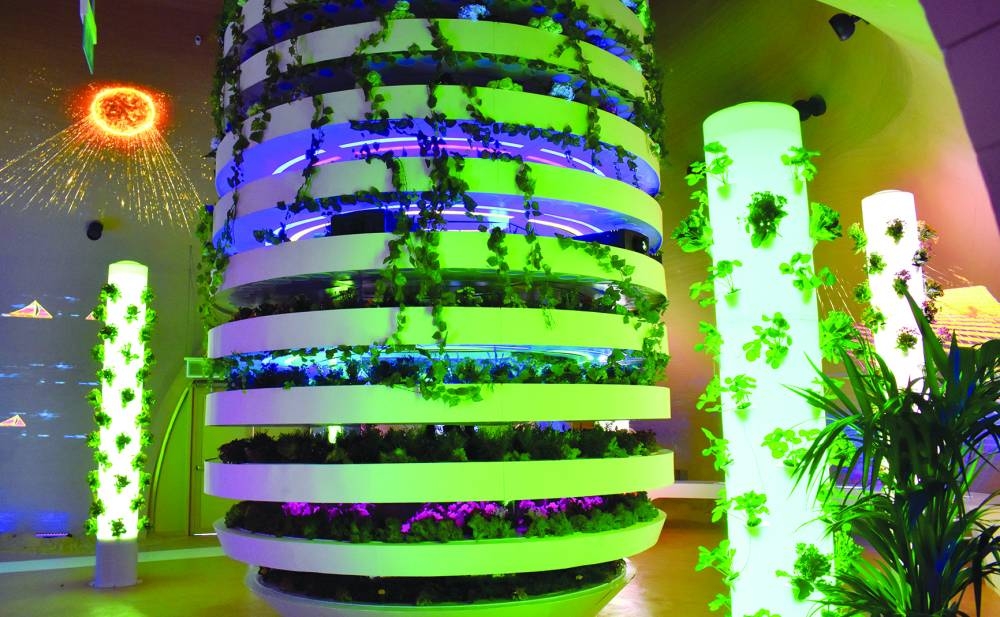Qatar has an emerging agricultural sector, which demonstrates significant promise for extensive production in the region, the Investment Promotion Agency Qatar (IPA Qatar) has said.
In its newsletter for Q3 2023, IPA Qatar stated that accessibility to capital, government initiatives, resilient transport and logistics, growing demand, and support systems have played a key role in the development of this sector.
The IPA Qatar newsletter stated that Qatar Development Bank’s (QDB) 16 industrial facilities for the food and beverage (F&B) sector under its ‘Jahiz 2’ initiative was essential in providing access to capital.
Other factors that contributed to the development of the agricultural sector in Qatar include low tariffs for productive farms, including electricity tariffs of 0.07/kWh and water tariffs of 5.2/m³; more than 50 establishments and partnerships with leading technology companies and research and development (R&D) centres through Qatar Science & Technology Park (QSTP); and the capacity to increase production as 51,354 hectares of cultivatable land remains uncultivated.
Government initiatives like the Qatar National Food Security Strategy aims to increase vegetable production to reach 70% self-sufficiency in greenhouse vegetables by 2023, the newsletter also reported.
Other initiatives also include the joint Food Security Project between the Qatar National Research Fund (QNRF) and Ministry of Municipality and Environments (MME) for the development of sustainable food systems in Qatar, as well as the partnerships between Qatar Free Zones Authority (QFZ) and the MME for the creation of investment opportunities in the field of agritech.
In terms of resilient transport and logistics, the newsletter underscored the importance of Qatar’s global connectivity through Hamad International Airport (HIA) and Hamad Port with one of the world’s largest air cargo carriers.
It also stated that Qatar is among the top 30 globally on the logistics performance index for international shipments, infrastructure, and timeliness. The country has geographically diversified trade partners for critical commodities and offers exemptions from customs duties on imported raw materials and machinery.
According to IPA Qatar, Qatar’s increasing population is creating momentum for the country’s food security programme. “A growing percentage of shoppers are insisting on organic or clean food...organic packaged food and beverages consumption in Qatar grew from $17.2mn in 2021 to $20mn this year,” the newsletter stated.
IPA Qatar also stated that the Qatar International Agriculture Exhibition (AgriteQ 2022) provided an opportunity for investors to collaborate on the latest agricultural technologies.
Other support systems include the following: IPA Qatar’s memorandum of understanding (MoU) with Wadi Water will enable the company to invest in innovative technologies in the agriculture industry; Mahaseel, owned by Hassad Food, supports local agricultural production and private sector investments in agritech innovation; and the MME’s investment portal ‘Foras’ is promoting public-private partnership.
Similarly, a recent Qatar News Agency (QNA) report lauded the visionary leadership of His Highness the Amir Sheikh Tamim bin Hamad al-Thani, which helped achieve significant accomplishments in the development of the country’s agricultural sector.
His Highness the Amir has prioritised the development of natural resources, particularly agriculture, as a national priority, aiming for self-sufficiency and food security. This includes the adoption of policies, strategies, and innovative techniques to serve both agricultural and environmental sustainability, QNA further reported.

File photo of the ongoing Expo 2023 Doha Qatar.

